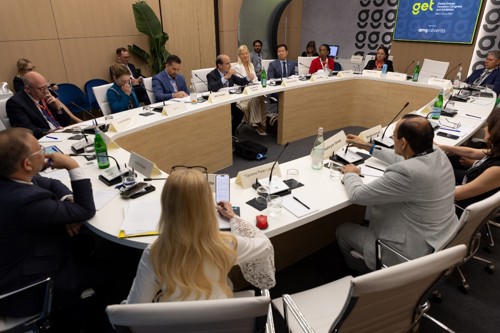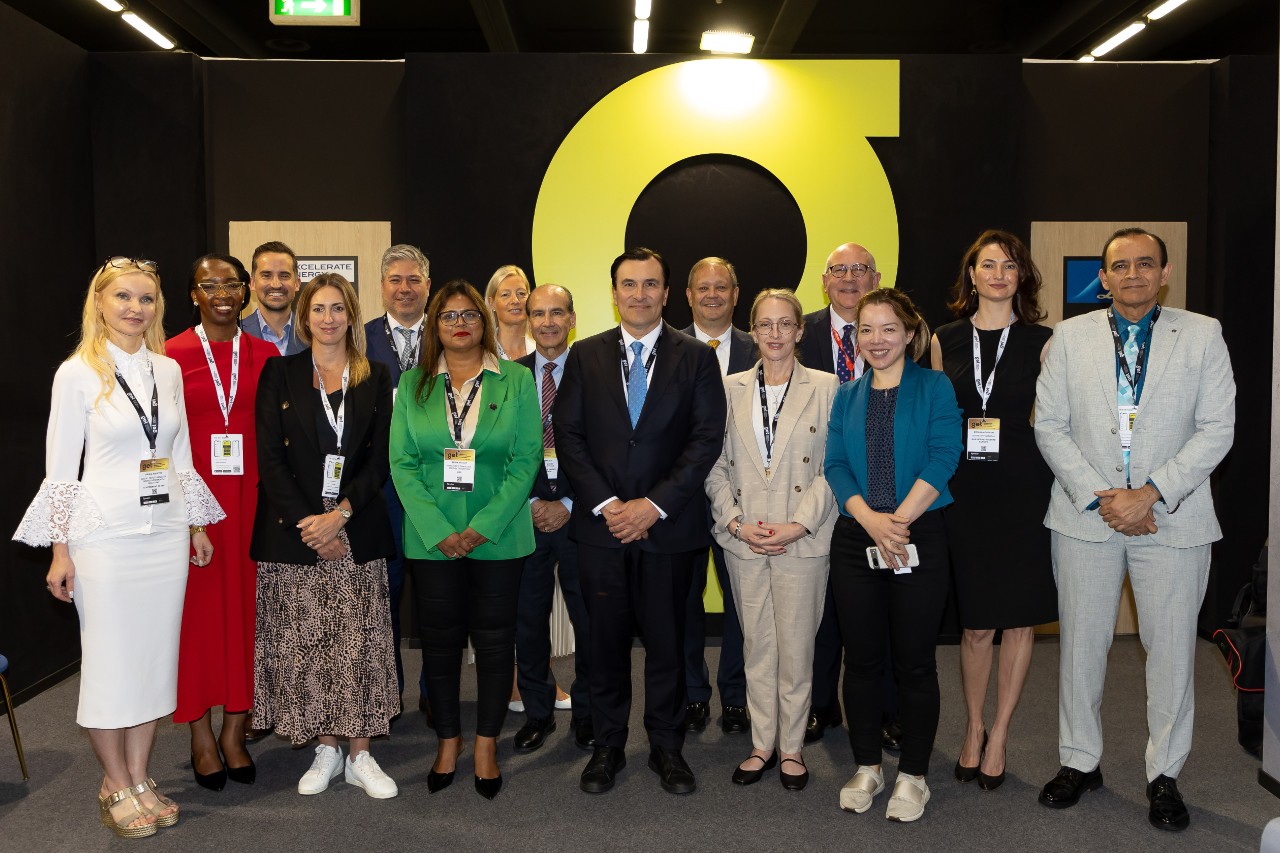IEF Secretary General Joseph McMonigle moderated a 90-minute Chatham House roundtable composed of 20 participants at the Global Energy Transition Congress and Exhibition in Milan, Italy on Tuesday 2 July 2024.
Dialogue summary
The dialogue opened with a summary of the conclusions of the IEF's landmark report "Shaping a Living Roadmap for Energy Transition" published in August 2023, which concluded that expectations of a single global linear transition were misplaced.
It was noted that developments over the last three years demonstrated that the energy transition was more complicated than had previously been thought.
The net-zero narrative has been led by the industrialized economies of the OECD, with less contribution from the developing world. This gap was addressed by a series of 11 dialogues held under the IEF's Global Energy Solutions Initiative from 2022 to 2023. These dialogues highlighted new perspectives on the transition from the Global South, where climate goals coexist with priorities around energy security, energy access, and affordability.
The main themes of the Milan leadership roundtable were as follows:
It was noted that energy access was still a key priority for many countries, as energy poverty continues to be a problem, in particular in Africa. In the developing world, it was noted that energy has to be affordable and reliable. "There can be no transition with energy poverty," said one participant. In addition, it was noted that the global population is expected to grow by one billion people by 2050 and another one billion people by 2100, so energy demand will continue to grow for a century.
One participant noted that the transition would require a portfolio of technologies, depending on the geography. Another participant noted that new carbon capture technologies have evolved since the early days of the technology, and today can use organic and non-toxic enzymes instead of conventional chemicals.
One participant noted that regulatory approaches to transition, in particular bans and penalties, often have unintended consequences. Nonetheless, there is a need for an international body to oversee emissions because climate change is a global phenomenon. One participant noted the example of California's net zero policy, which is well suited to the specific political and business environment of that state. Rather than attempting to put a price on carbon, which would be effective but politically unacceptable, he noted that California has used a series of policy levers including incentives for technology innovation and deployment. For the hardest-to-abate sectors, California will need direct air capture and has stimulated a huge investment boom in this area.

Another participant struck a discordant note, saying that conventional wisdom underestimated the potential of "exponential change" in energy consumption patterns and technology developments. This participant noted that there was already a large amount of data showing that consumers were increasingly demanding zero-carbon electricity and industry was struggling to keep up.
One participant noted that the net zero debate needs to move on from talking about generalities to discussing particular fuels, as the transition is not a binary problem. Progress will be made by moving from higher-carbon fuels to lower-carbon fuels, for example. Policy makers should prioritize progress towards climate goals over perfect net zero solutions.
This participant also noted that "net zero hunger" was needed before "net zero emissions", because hungry and poor people will use whatever fuels they can find, whatever the impact on the environment. Moreover, it was noted that energy is a core component of many basic human needs including food, mobility and building materials such as steel and concrete. Therefore, emissions are not only an energy problem, but are a shared responsibility for all industries, people and governments.
One participant noted that recent EU elections had spelled the end of the European Green Deal, and public acceptance of transition policies was a problem. A more realistic transition was needed. This would require new technologies in the gas supply chain, such as carbon capture and storage, that require different industrial players to collaborate in new ways.
On the topic of energy infrastructure, it was noted that flexible infrastructure such as floating LNG terminals is highly valuable since it allows countries to choose between different fuel sources, depending on cost and availability. Floating LNG import terminals allow countries to choose between domestic coal and imported gas, for example. Floating LNG can also be redeployed when circumstances change, reducing decommissioning costs and improving the economics of gas infrastructure.
This article was originally published by the International Energy Forum (IEF). You can read the original article here.
Register your interest in GET Congress & Exhibition 2025 here: https://www.getcongress.com/forms/register-your-interest-2025/



